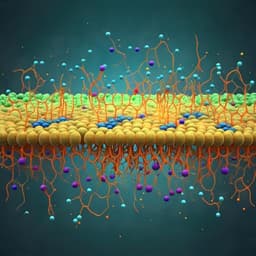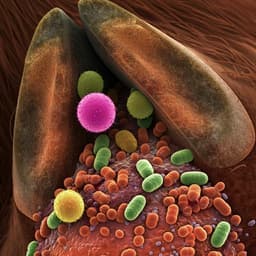
Medicine and Health
Non-antibiotic pharmaceuticals are toxic against *Escherichia coli* with no evolution of cross-resistance to antibiotics
R. J. Hall, A. E. Snaith, et al.
Explore the pressing issue of antimicrobial resistance in this groundbreaking study by Rebecca J. Hall and her colleagues, revealing how long-term exposure to non-antibiotic pharmaceuticals impacts *E. coli* without fostering antibiotic cross-resistance. Dive into their findings on the effects of common drugs like ibuprofen and metformin.
Related Publications
Explore these studies to deepen your understanding of the subject.







